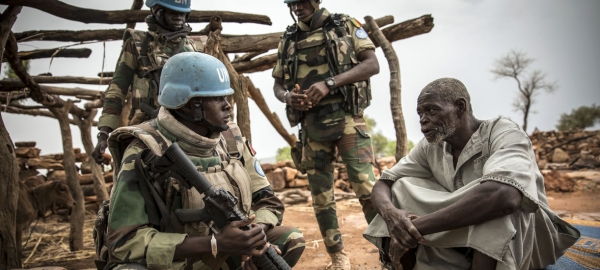UN peacekeeping missions support states in the transition from the state of war to that of peace by ensuring the protection of civilians from physical violence. The protection of civilians (POC) is based on a definite normative and policy framework, and its practical implementation relies on several innovative approaches including a proactive attitude of peacekeepers. However, over the last two decades, not all UN operations have been successful nor fair. Indeed, on many occasions, peacekeeping forces have failed to protect civilians, not responding to threats despite being informed about the risks. In particular, even if UN forces were aware of the possibility to be under an imminent attack or were in proximity to areas in which abuses were committed, they failed to protect civilians. In many investigations and reports about these incidents, shortcomings in performance were underlined and the need for more accountability was highlighted. Despite these remarks, however, there is still limited accountability for peacekeepers involved in missions to protect civilians.
The report “The Accountability System for the Protection of Civilians in UN Peacekeeping” by the International Peace Institute (IPI) addresses this flaw in the UN system by stating that existing accountability measures within the United Nations should be applied to peacekeeping operations for the Protection of Civilians (POC) since a shift toward liability is urgently required.
First of all, the report underlines that there is a general sense that individuals and states should be held accountable by the UN and not the reverse. However, the well-known failures of the organization, including inaction in the face of genocide, crimes against humanity, violence against civilians and scandals related to sexual abuse by peacekeepers, have led to consider the UN accountable for misconduct and negligence. Accordingly, the report defines accountability for POC missions as the ‘the obligation of the Organization and its staff members to be answerable for delivering specific results that have been determined through a clear and transparent assignment of responsibility, subject to the availability of resources and the constraints posed by external factors’. Thus, the document considers accountability as both a virtue and a mechanism since it relies on specific structures that enable agents to account for and report on their actions. Four are the main dimensions of accountability: (1) establishing clear roles and responsibilities through guidance and training for all actors; (2) missions need appropriate means, including human and material resources and rules, regulations, and procedures; (3) establish UN internal robust monitoring mechanisms and oversight tools to track performance; to which should be associated (4) concrete corrective measures, sanctions, and incentives for results.
Nevertheless, accountability for POC is complex since peacekeeping has a fragmented system based on a plurality of entities and mechanisms ensuring liability, rather than a unified structure of control and supervision, therefore, many are the challenges to implement it. Namely, attributing responsibility to a specific actor is difficult due to the UN’s multidimensional approach to POC; enforcement through sanctions is rarely pursued and transparency is often limited because of the political and institutional influences affecting peacekeeping performance. As a result, beyond effective tools and mechanisms, an accountability system for POC in peacekeeping needs a culture of accountability. Thus, the difficulty relies on changing the mindsets of all stakeholders making them proud of their duty to protect civilians. Indeed, according to the report, all peacekeepers should share responsibilities and be held accountable .
Towards this end, the policy paper offers some recommendations to improve the UN’s accountability structures, which lack transparency and coherence. First, the UN should establish a more cohesive structure, connecting all the existing tools, allowing a more fluid transmission of information while clarifying the roles and the responsibilities of operational teams in POC. Second, strengthening independent, dedicated, and transparent accountability tools by using more independent investigative teams and enhancing the role of the Office for Peacekeeping Strategic Partnership. Finally, sanctions in cases of underperformance should be enforced as well as recommendations made by investigations should be accomplished and together with this, incentives and rewards should be provided to create a sense of pride about protecting local populations.
To read more, please visit:
https://www.ipinst.org/wp-content/uploads/2020/12/POC-Accountability-System-Final.pdf
https://reliefweb.int/report/world/accountability-system-protection-civilians-un-peacekeeping
Author: Eleonora Gonnelli; Editor: Benedetta Spizzichino




